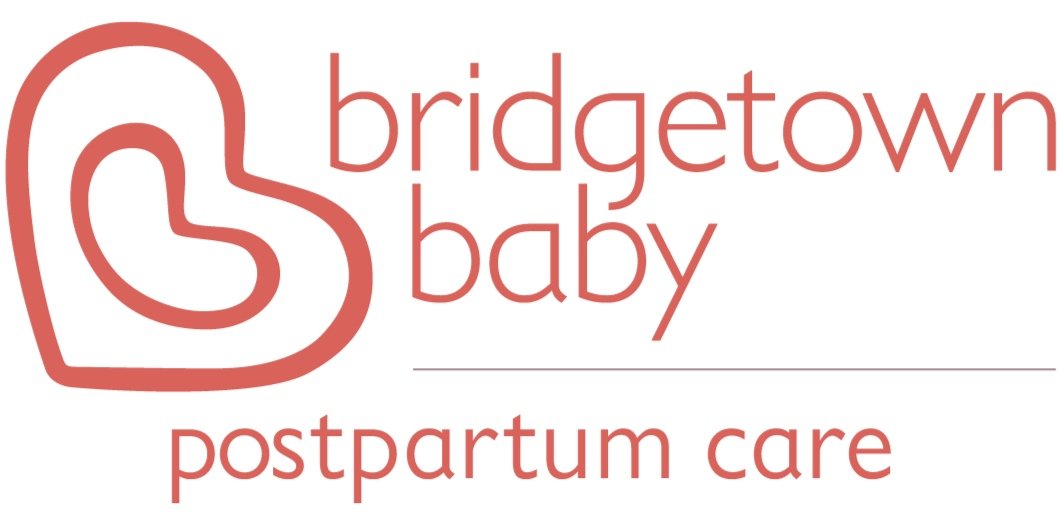How to Help an Infant With Gas
If you’re nursing your baby, you’ve probably heard the advice “don’t eat broccoli/beans/dairy/garlic/anything-you-really-love-to-eat, because it can cause your baby to have gas.” While there are some cases in which an allergy to specific proteins in foods you eat can impact your little one, fortunately, this more general advice is one piece of folk wisdom that you can take with a grain of salt - and a side of feta - because the gas in babies isn’t commonly caused by the foods that you ingest.
The other good news is that there are some postpartum-doula-tested-and-approved ways to help your little one get more comfortable with baby gas that they’ll inevitably experience.
Why do babies get gas?
Babies are constantly passing gas but no one likes a fussy baby. Gassy babies happen at any stage (just wait a few years, til fart jokes are the dominant form of humor in your household) but are particularly common in the fourth trimester (months 1-3) when your newborn baby’s digestive system is still maturing. Gas can also occur if your baby has poop on the way: just as you may have experienced yourself, there can be a bit of a “backup.” Gas is often painless, though it may take a little work for the babies to pass gas, get out the gas bubbles and find gas relief. Sometimes, however, the pressure can build up, and cause gas in your baby and pain but your little one will let you know they are unhappy.
Remedies for Baby Gas Relief
Limit the amount of air your baby swallows
Whether at the bottle or at the chest, while nursing, an efficient latch will help your baby swallow less air. When offering your baby a bottle, use baby-led feeding, sometimes also called paced feeding or responsive feeding to ensure your baby has a good flow of milk or formula. This will your baby control the flow of milk or formula and minimizes gulping, which can lead to swallowing air while drinking. If you think your baby is swallowing air while nursing or bottle feeding or your baby seems to be showing signs and symptoms of baby gas, Bridgetown Baby’s lactation consultants can help!
Baby massage, not burp
Gone are the days of pounding on a baby’s little back to “get a burp out.” If you feel your baby is gassy, you can keep them in, or move them to, an upright position, then gently rub their back up and down to help break up those gas bubbles. You can do little massage circles, starting at their lower back and working your way up. This should be sufficient to “release” a burp, keep things moving and help break up the gas if they have some extra gas. You can also hold your baby with their tummy across your arm or lap while massaging their back. Massaging in this way can do double the duty of helping to relieve your baby's gas while also offering them soothing touch.
Movement can help a baby with gas
Movement can help release trapped gas from either end. Tummy time is not only good for building strength in the neck and upper back but also for helping release tension in the digestive system. So from the very beginning try to place your baby on their tummy and get a few minutes a day of tummy time.
If they are in pain or if your baby cries, a good go-to is the Wheels on the Bus activity. Lay your baby on their back and sit by their feet, then sing or play a recording of The Wheels on the Bus. (The singing and eye contact create connection and diversion - helping the situation in other ways!) As you come to each action, mimic the action with your baby’s hips and legs: when the wheels go round and round, move their legs in clockwise circles; when the wipers go swish swish swish, gently bend their legs at the knees and move knees back and forth and side-to-side; when the horn goes beep beep beep, you can gently press their bent knees toward their chest. You can get creative as you help your baby with three-dimensional movements to ease discomfort in their lower digestive tract.
While most cases of infant gas are harmless and just a normal part of being a baby, there are times when you should seek professional help. If your baby exhibits new and/or excessive crying bouts or isn’t eating, peeing, or having regular bowel movements, or if your instinct is telling you that something is wrong, call your pediatrician.
The key to babies who have gas is to be proactive. Squeeze in tummy time as much as you can. Every baby needs tummy time and the bonus is it can help a gassy baby! Help control your baby’s air intake when you feed your baby whether you give them a bottle or breastfeed. If they still have some gas that makes them uncomfortable, get their little legs moving to help relieve gas.
And remember the good news: most infant gas comes as a product of babies’ immature digestive systems, and they will grow out of it. So you can always keep in mind that (pun intended) this, too, shall pass.

